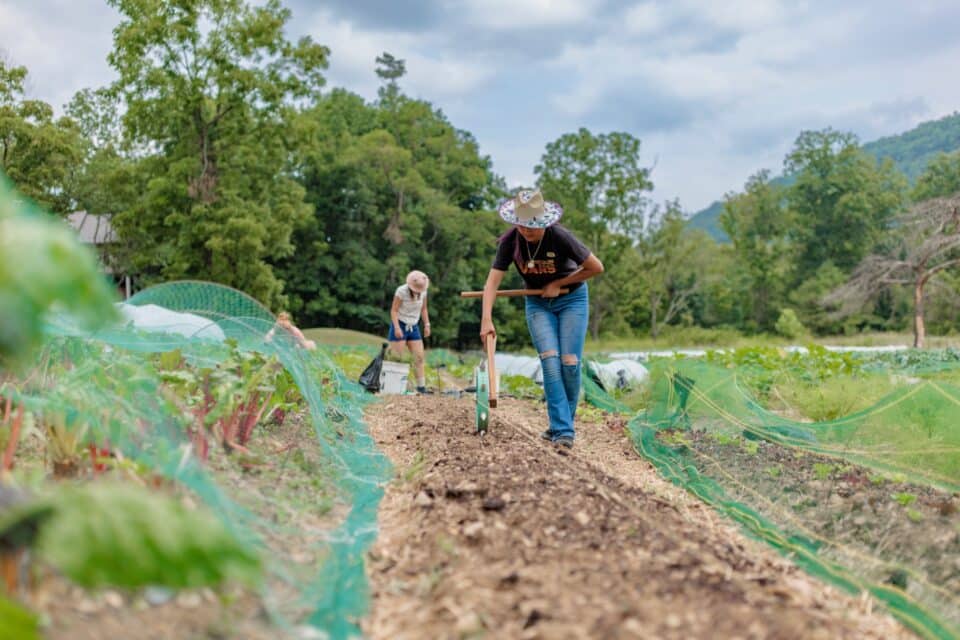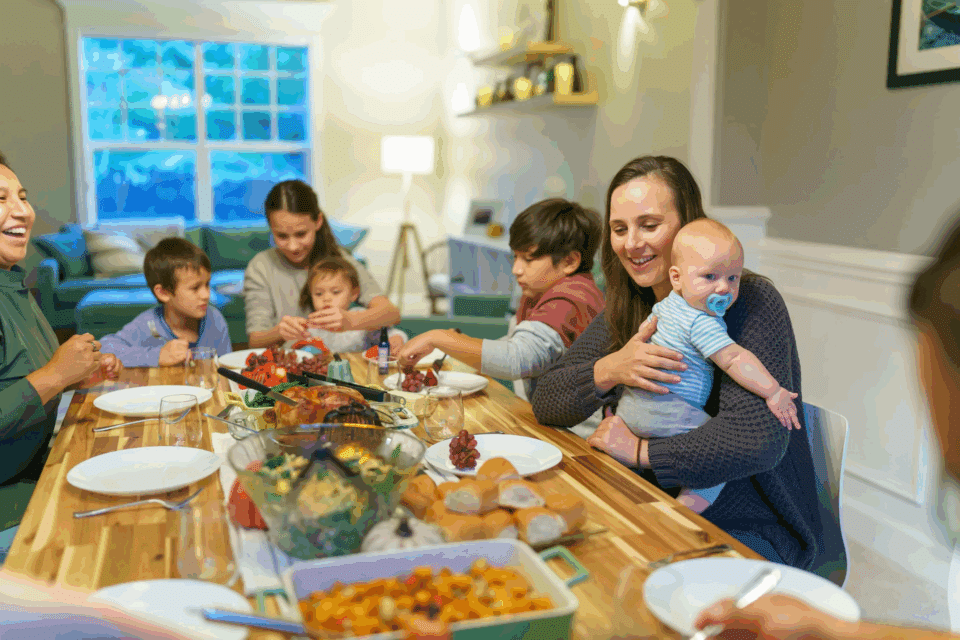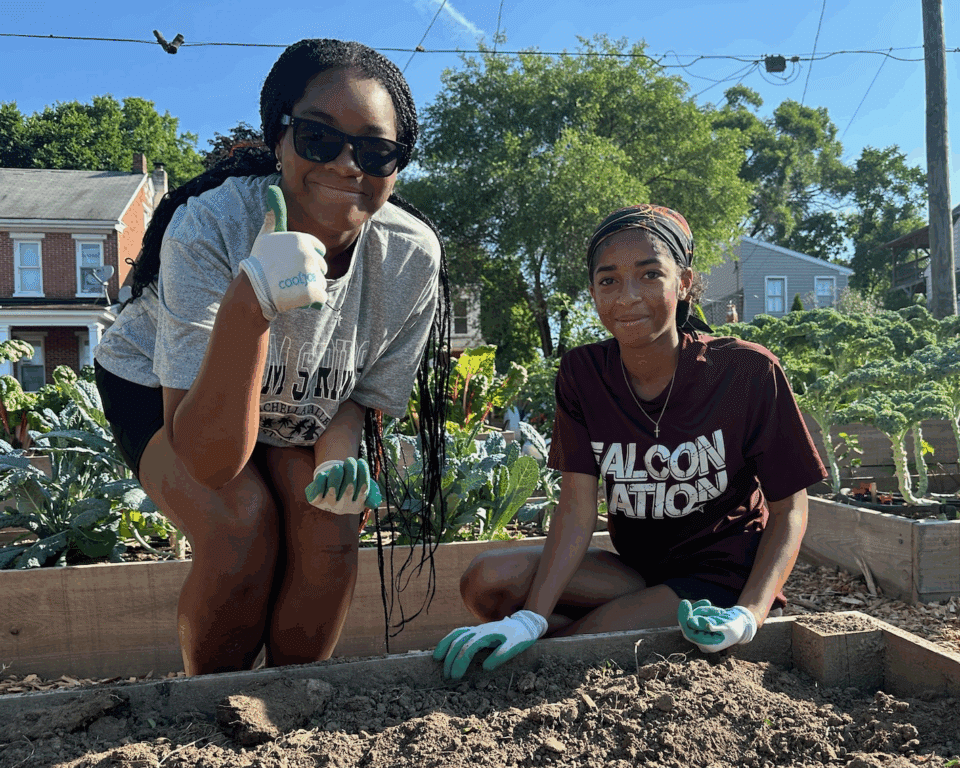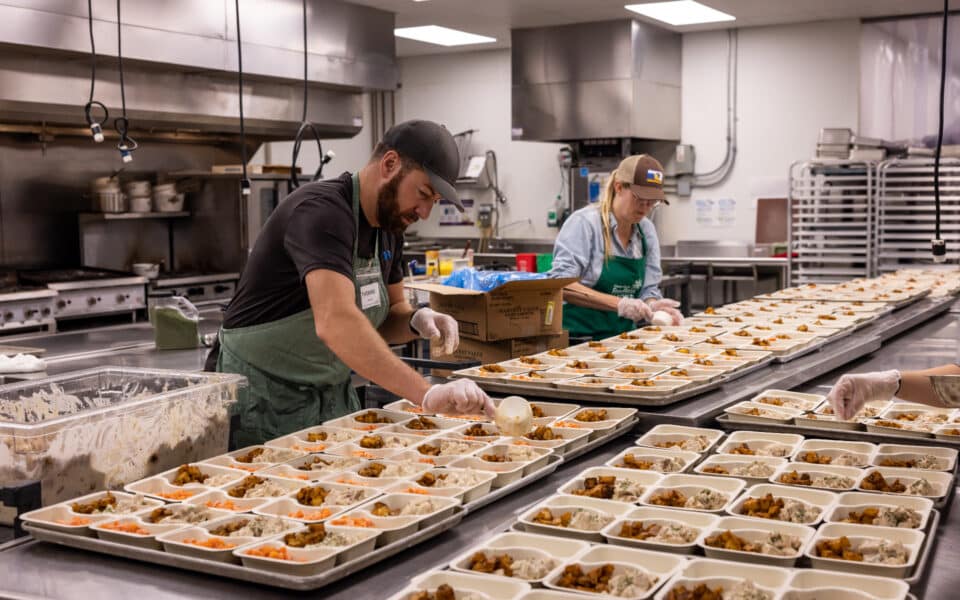The Philadelphia Orchard Project (POP), turns barren city spaces into thriving little orchards. POP has helped to launch 68 orchards in Philadelphia and this number is climbing, transforming vacant lots and urban spaces into verdant food sources, run by community partners and neighborhood volunteers.
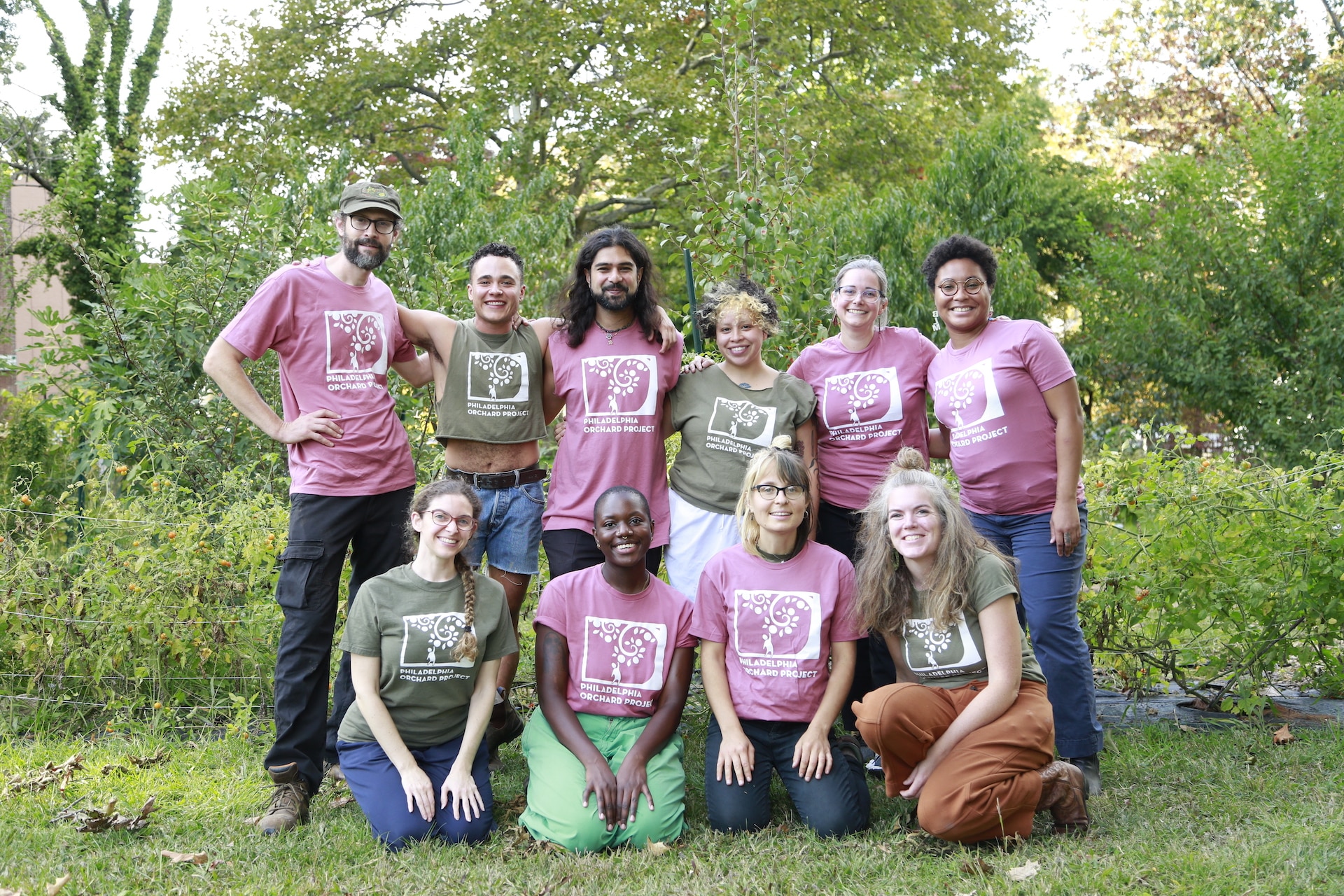
POP staff Phil Forsyth, Julien D’Andrea, Indy Shome, Carolina Torres, Kim Jordan, Deja Morgan, Cortina Mallozzi, Sharon Appiah, Simone Shemshedini and Corrie Spellman-Lopez
We spoke with POP’s Co-Executive Director, Kim Jordan, about the evolution of this remarkable project, recent happenings and its vision for the future.
POP was founded in 2007 by grassroots organizer Paul Glover, a former Temple University professor of urban studies who has launched numerous organizations and campaigns with a focus on job creation and green employment.
“He envisioned an organization like POP that focused on perennial food crops” says Jordan.
Over a series of potluck dinners and gatherings, a small group of volunteers, including Jordan and Forsyth, developed the model of working in partnership with communities to turn underutilized spaces into permanent food-producing sites. The little project grew into a high-impact organization.
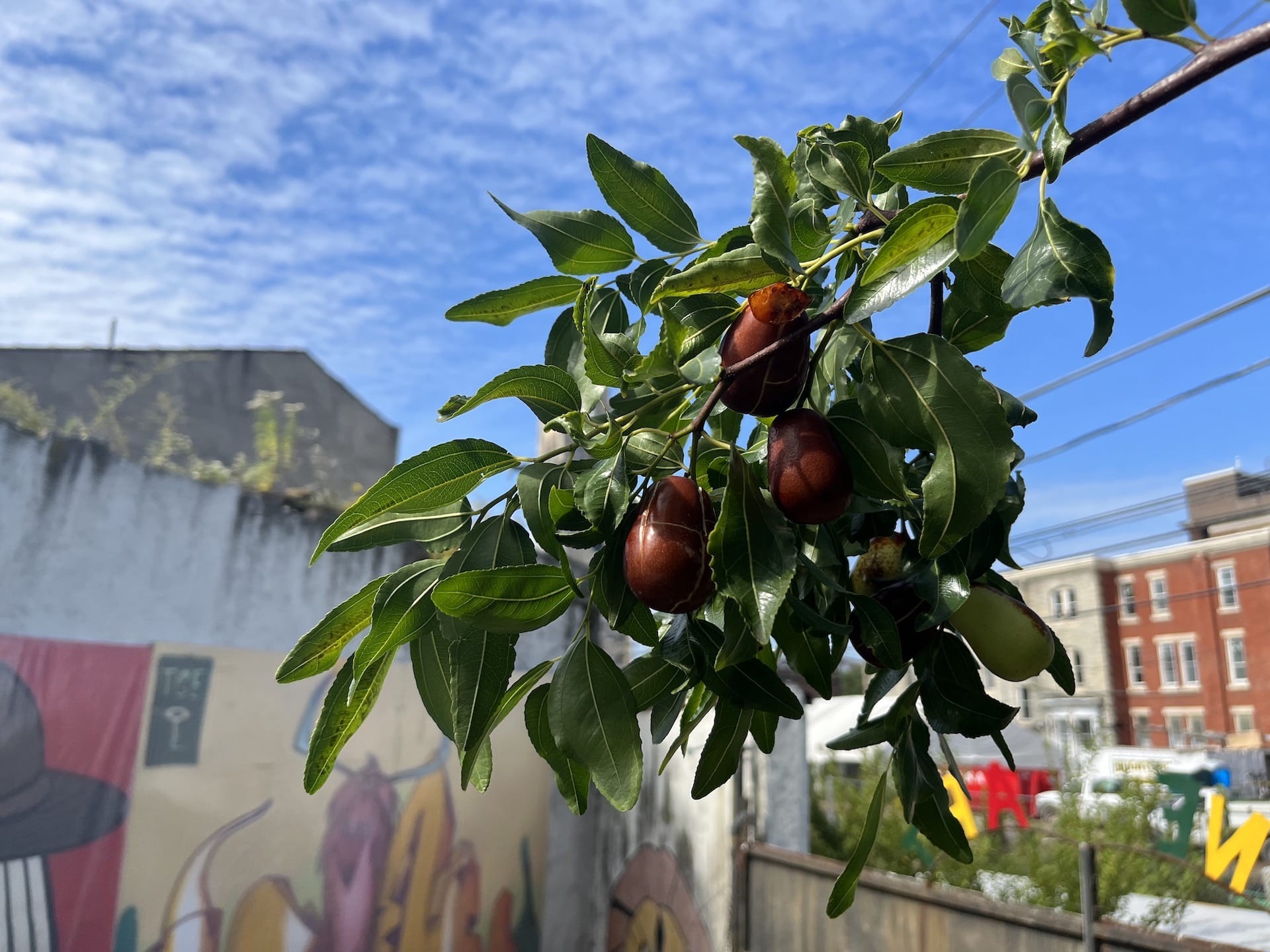
How it Works
The POP process is straightforward: First, a community organizer applies to become a POP partner. POP then evaluates the potential site, the capacity for its safe, long-term care, and plans for harvest distribution. Once selected, the community partner is guided by POP through orchard design, preparation and care. Planting costs are shared by POP and the partner on a sliding scale. From then on, POP acts as an ongoing resource while the community organization manages its own orchard and garden.
Jordan says, “The biggest ongoing challenge is that we, and other groups, are under-resourced. Our partners don’t have full-time staff to maintain the gardens or their horticulture person does 5,000 other things. Our partners are also dealing with land security issues. So we’re trying to be there, helping to make sure the space is maintained and living up to the vision that the community groups have for it.”
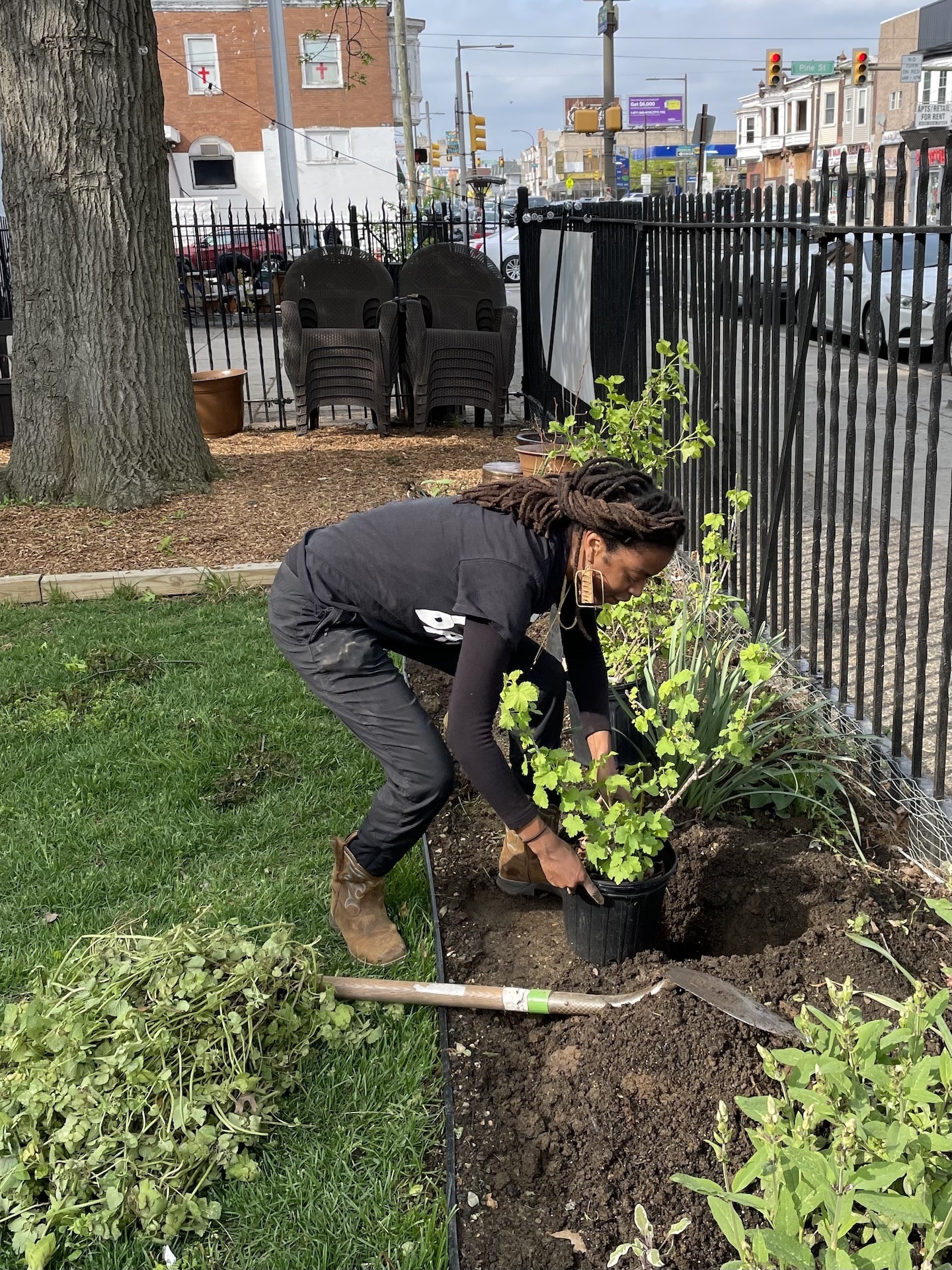
Mercelyne Latortue planting
As Jordan explains, it can also be tricky to sustain partner knowledge due to turnover: “Education is a really big part of what we do, so when someone who understands the rhythm leaves, it’s a challenge.”
Nonetheless, POP’s services are in increasing demand. It stays fruitful due to the efforts and expertise of its small but mighty staff of 10. POP develops and shares a tremendous amount of free educational resources and programming, available not only to its partners but for the general public. Much of POP’s programming is done on-site at the 68 orchards, including volunteer work days, consultations and engaging workshops around harvest, care, and produce use. One such series, POPHarvestEd, focuses on cultural, culinary and medicinal uses of lesser-known fruits, nuts and herbs.
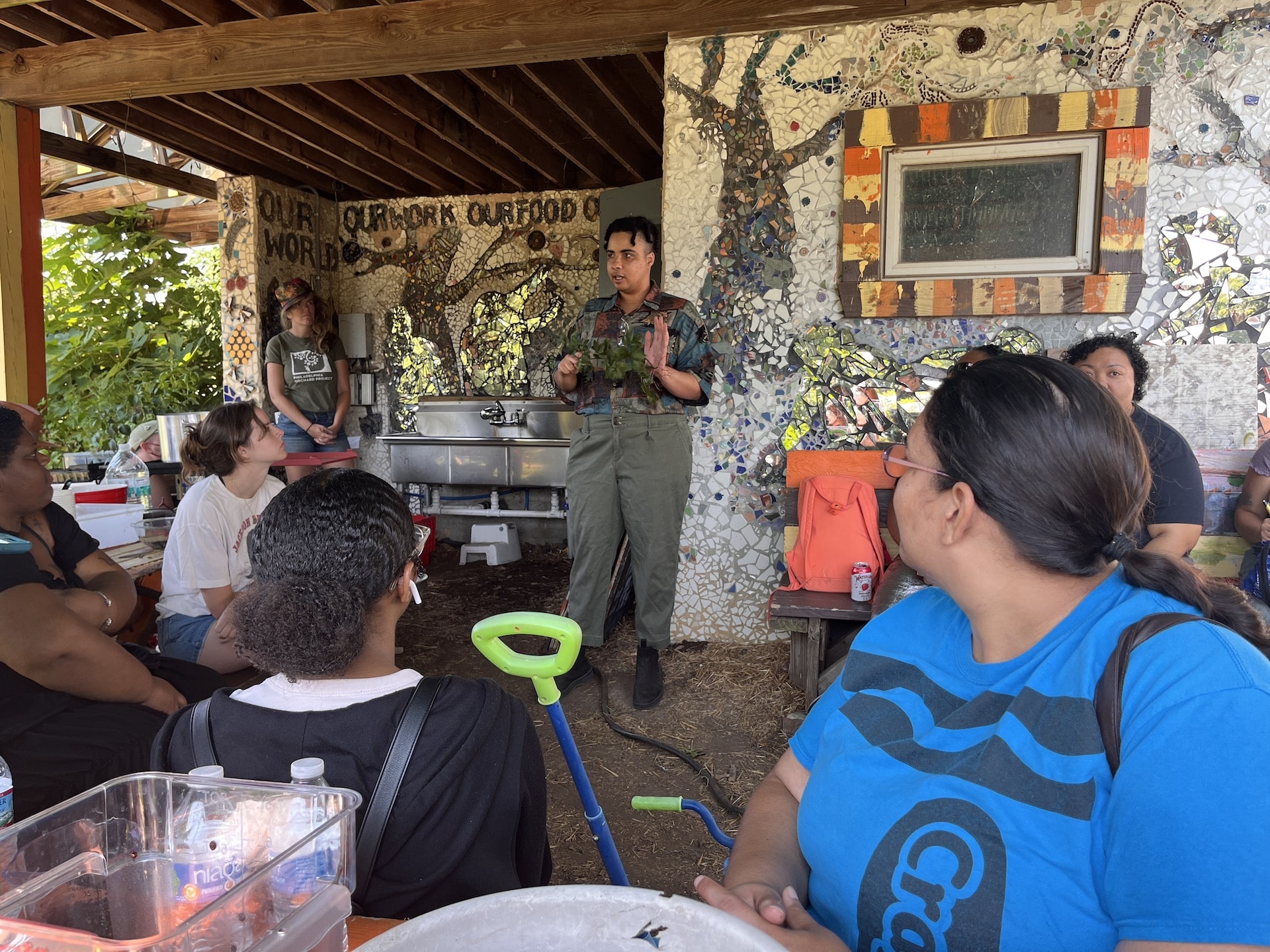
Yaya Vallis leading an AfroDiasporic Herbalism workshop on harvesting and processing elderberries
POP makes use of its home base and educational hub, the Learning Orchard at The Woodlands. This edible plant nursery and demonstration orchard hosts numerous programs and workshops. The site’s Director, Sharon Appiah, also facilitates twice-weekly workdays there.
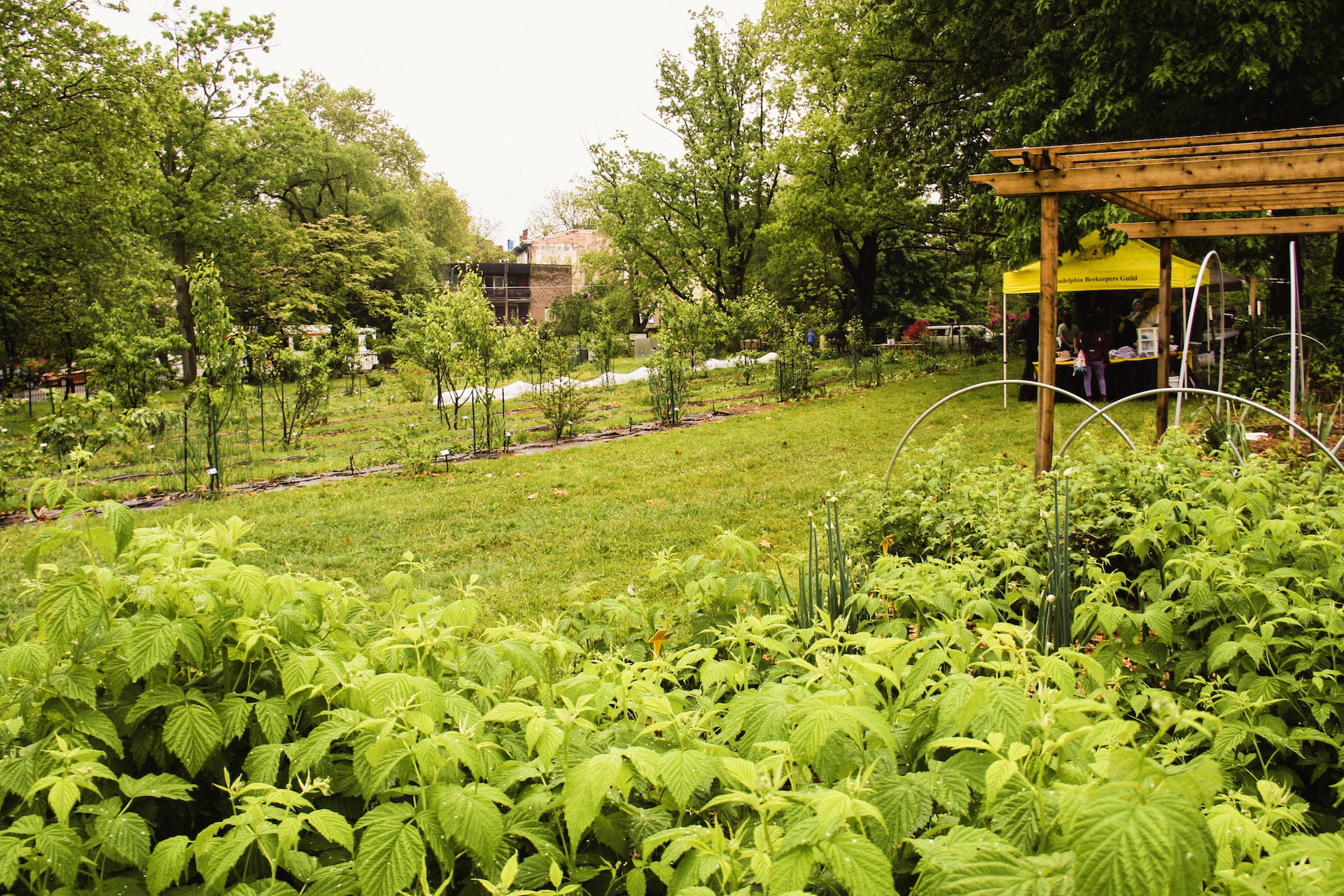
In addition to in-person educational offerings, POP has a vast, evolving digital library of clickable resources. This includes recipes and an extensive listserv and blog with tips, videos, announcements and action plans. POP also produced an orchard care video series (also on its YouTube) that covers pruning, pest and disease management and harvesting. Teachers and families with students of all ages are welcome to utilize POP’s dynamic lesson plans. They are ready-to-implement and tied to state standards, with seasonal activities, printable guides and ideas for extended learning.
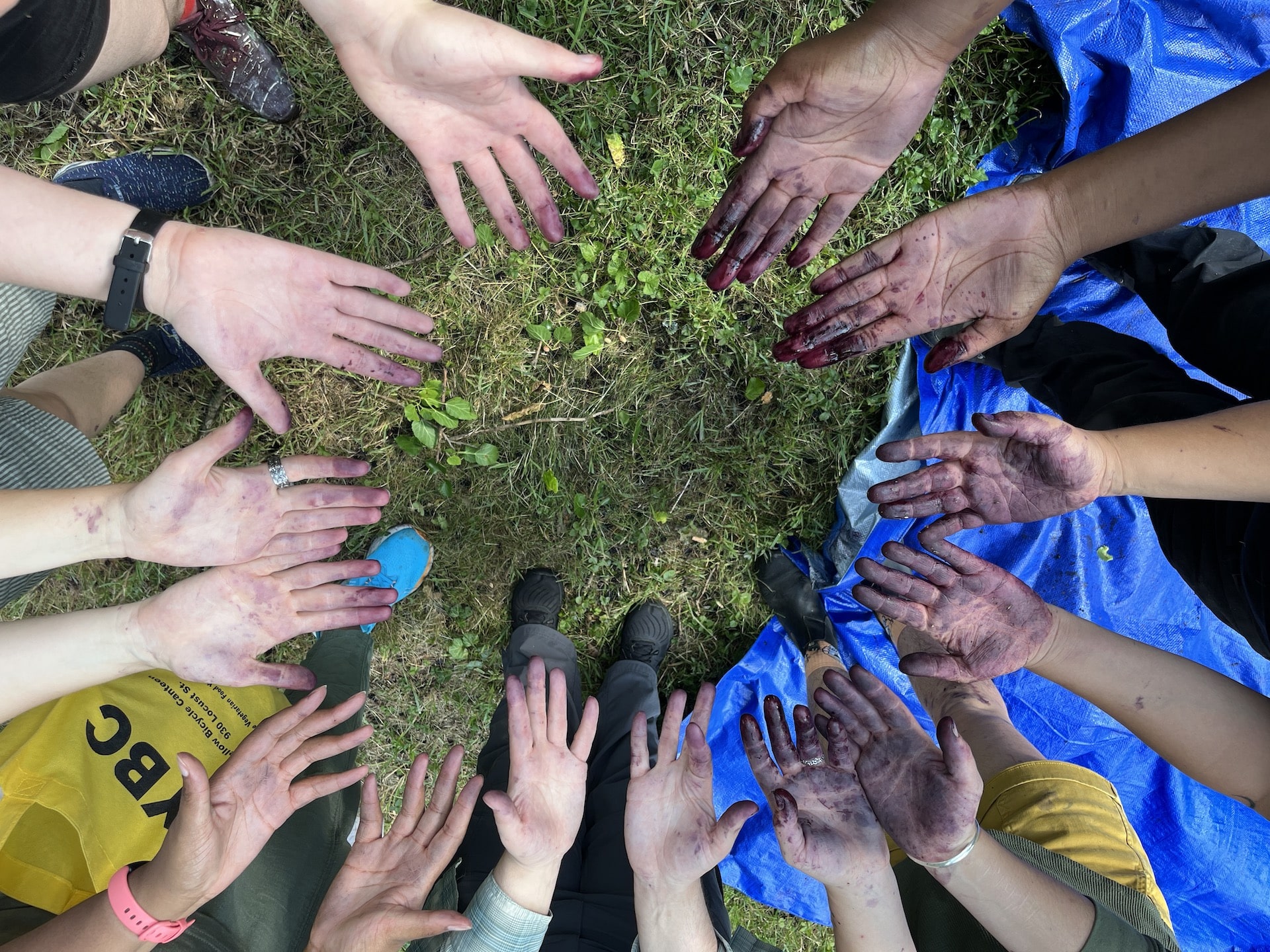
Planning, Planting and Harvesting
Growing food from scratch is both difficult and exciting. The produce grown at the POP sites is a source of ongoing joy and pleasure for those involved. POP encourages partners to think beyond apples and peaches, which are familiar but have pest and disease challenges. A diverse orchard offers more resistance and hardiness as well as opportunity to explore.
For a fast-yielding harvest, POP will help partners plant berries, figs and herbs.
“We really like planting a wide variety of berries – not just strawberries and blackberries, but gooseberries, goumies and nanking cherries. People are excited to try different berries for the first time,” says Jordan.
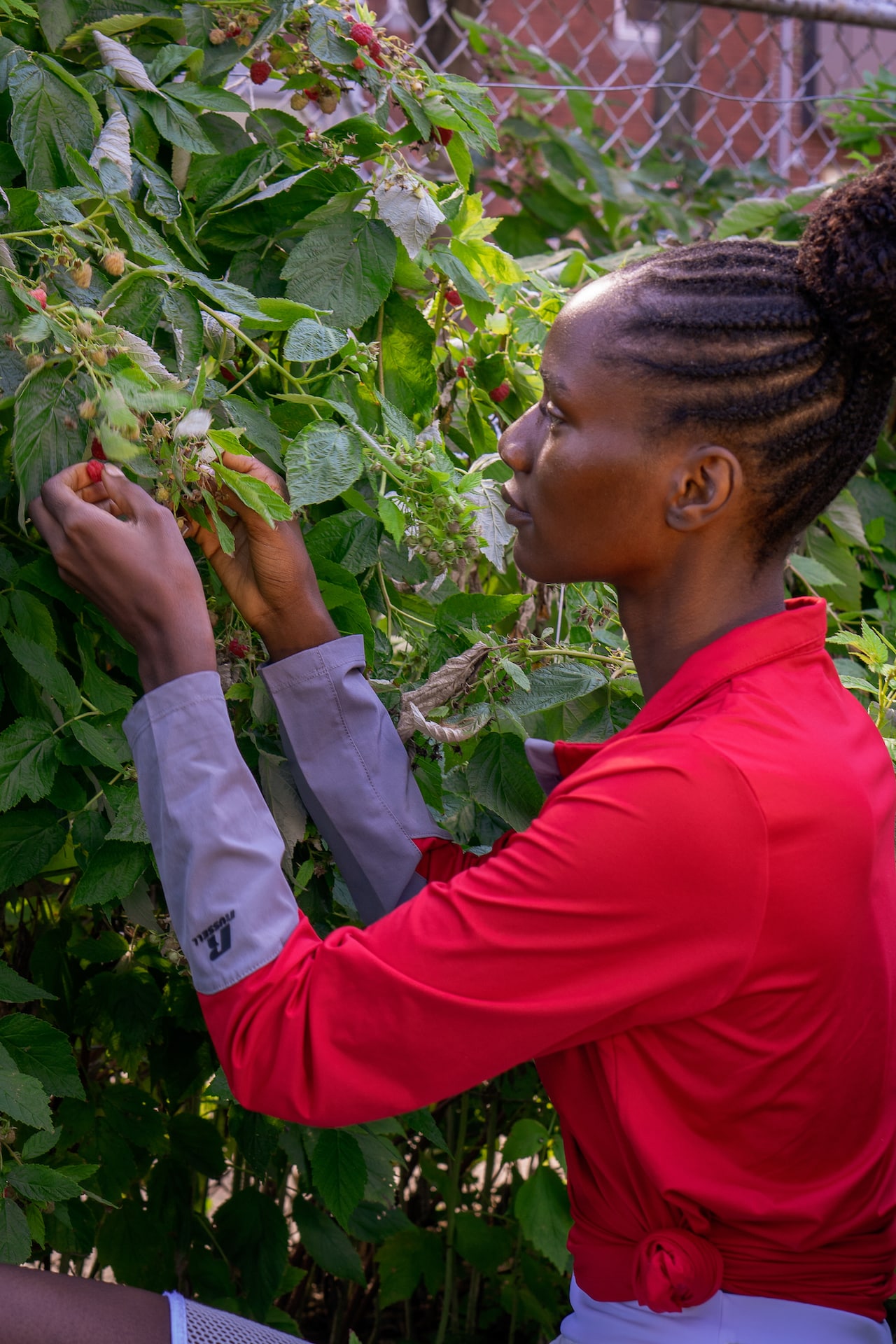
Lead Orchard Volunteer Nafeesah Cannady harvesting raspberries
She adds, “One of my favorite things to introduce people to is the kiwi berry. There’s this look of delight. People ask, ‘what is this thing?!’ It looks like a wrinkly grape.”
She says there’s a buzz around pawpaws, too, which take a few years to produce fruit. In 2023, POP-supported orchard Henry Got Crops at Saul High School had a robust harvest with about 5,000 pounds of pawpaws, 550 pounds of Asian pears and loads of persimmons as well.
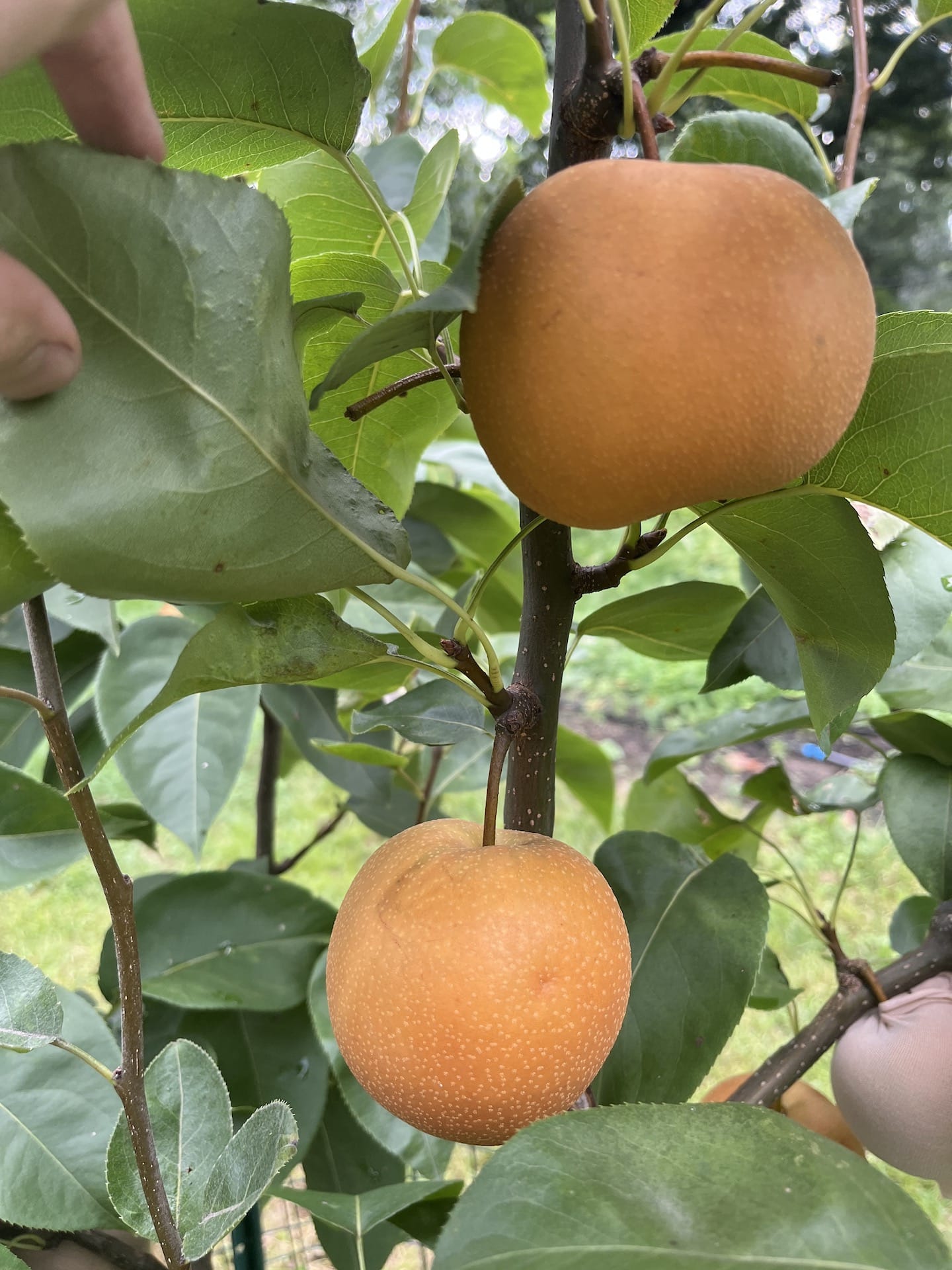
The orchards grow perennial vegetables, too, like rhubarb and asparagus. And, in recent years, POP is trying mushroom cultivation. They’re working with partners to drill holes into logs to insert spores, and they’re having some success so far!
“We’re seeing what we can grow in the understory as the orchard trees mature,” says Jordan.
The benefits of the POP orchards extend past the enjoyment its bounty offers. It taps into the city’s broader agricultural plan that aims to reshape food systems. About 23% of Philadelphia’s population lives in poverty, with well over 200,000 food insecure residents.
“The reputation that community gardens can have is that it’s just for fun and not necessary,” says Jordan. “In Philadelphia, where many people are growing food, they actually need it to supplement household resources.”
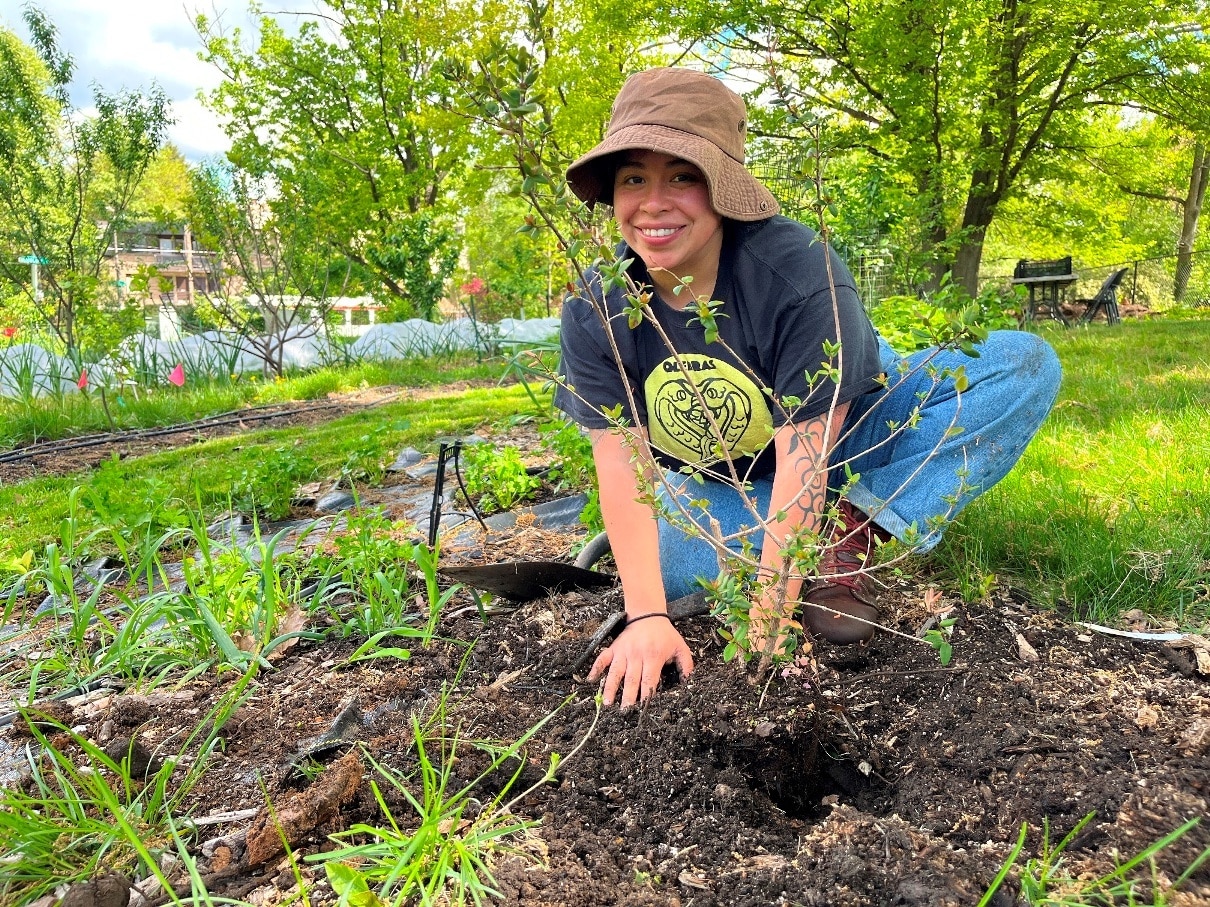
Orchard Coordinator Carolina Torres planting murta
In addition to fresh, free or low-cost food, the orchards also help to reallocate and transform urban land into permanently green food sources rather than lose it to development.
Jordan says, “Fruit trees might take a while to mature, but once a tree is there, it’s harder to cut that down and turn the space into condos. This is a viable, long-term use of the land, for people to grow food and have access to land.”
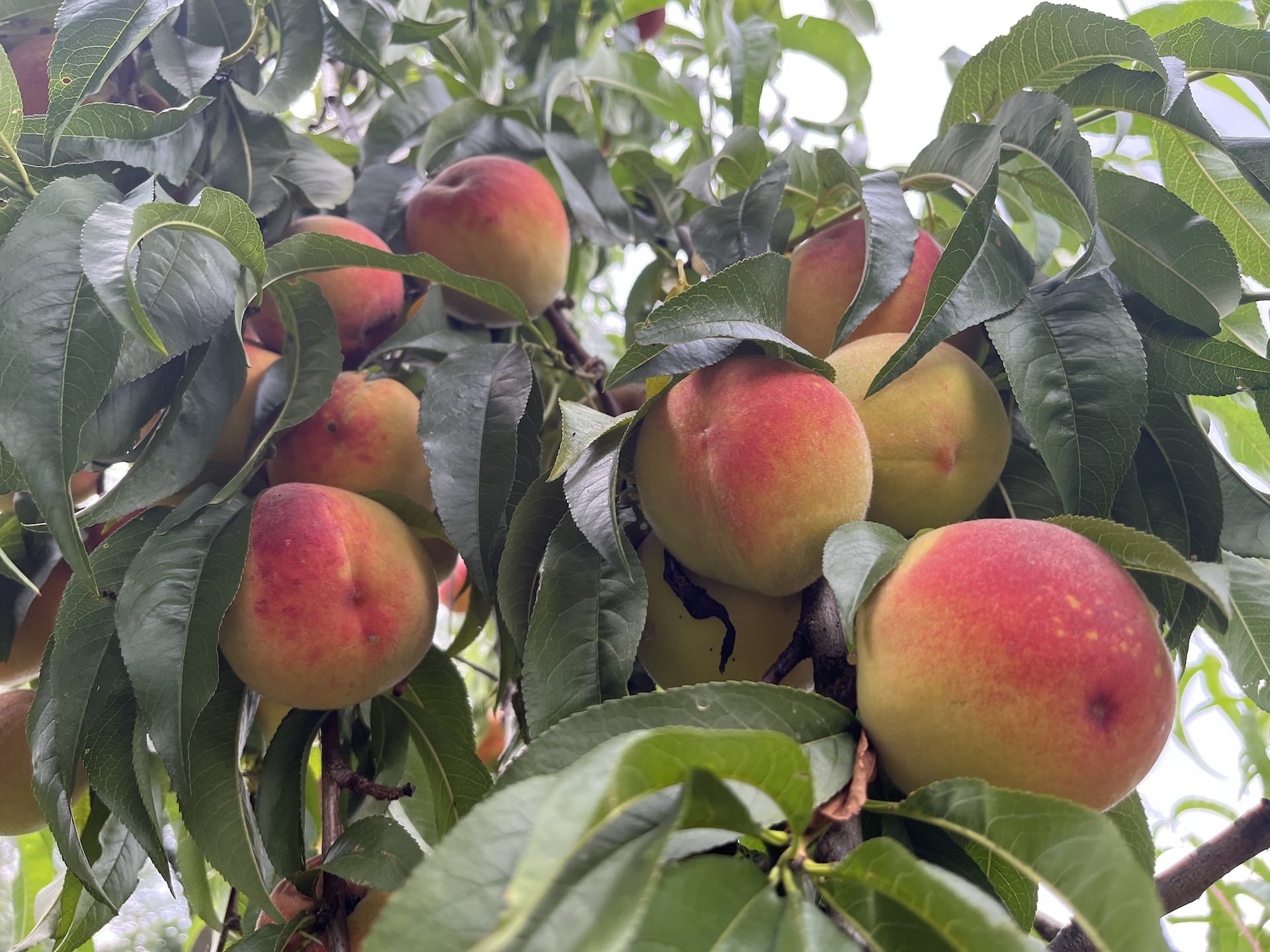
POP offers guidance to prospective partners on gaining legal land access, and adjusted its application process in recognition of systemic issues with land security. The guidance includes how to initiate the process of gaining access to land, figuring out water resources, urban gardening safety and insurance and community organization.
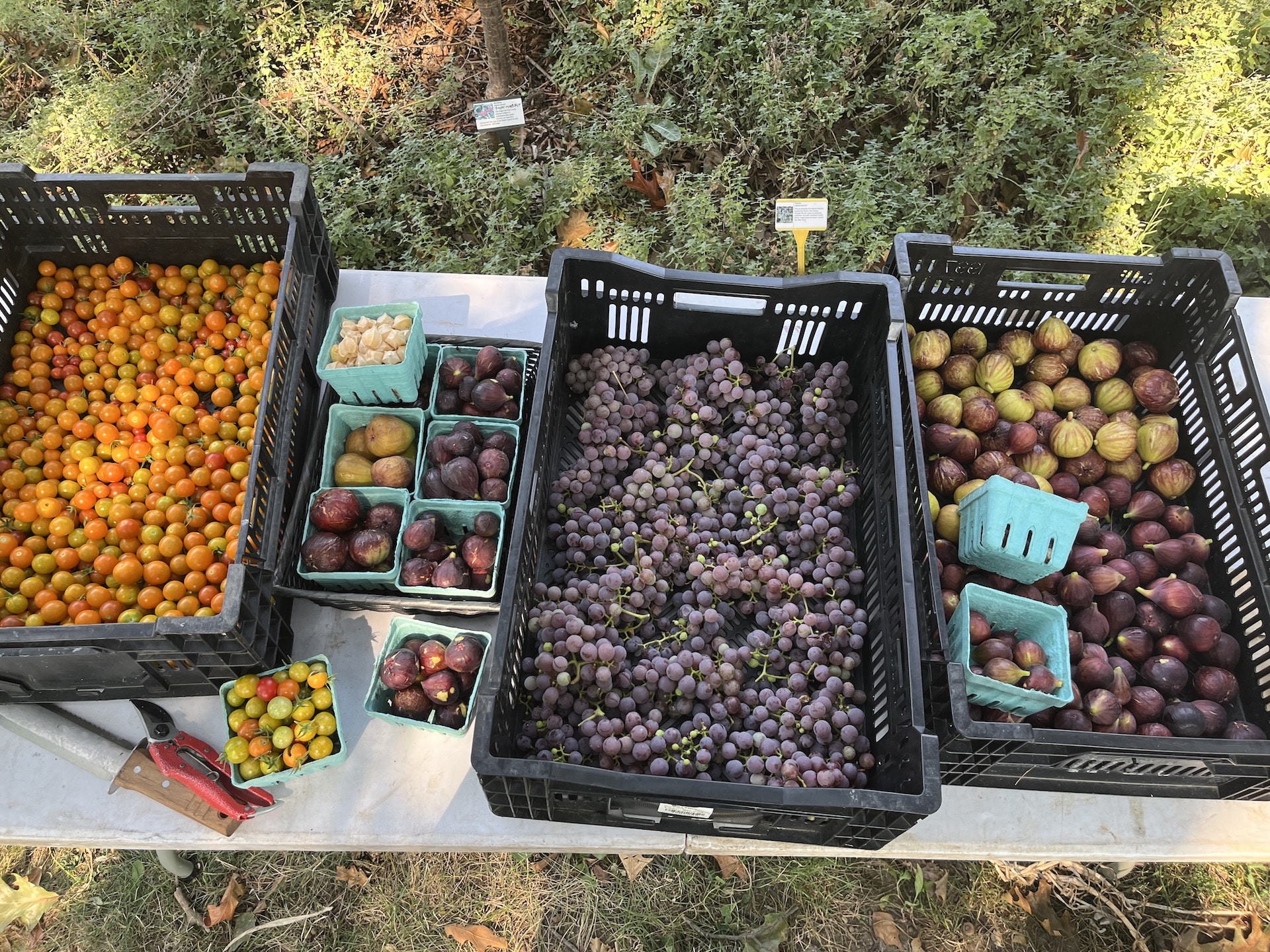
POP also centers partner ownership of the harvests, which each site handles independently.
“Some do a low cost farm stand, some just have people come by and harvest for free, some harvest and distribute to a local food cupboard or a mutual aid fridge, some use it in their own programming… It’s a wide variety with no real restrictions aside from personal use.”
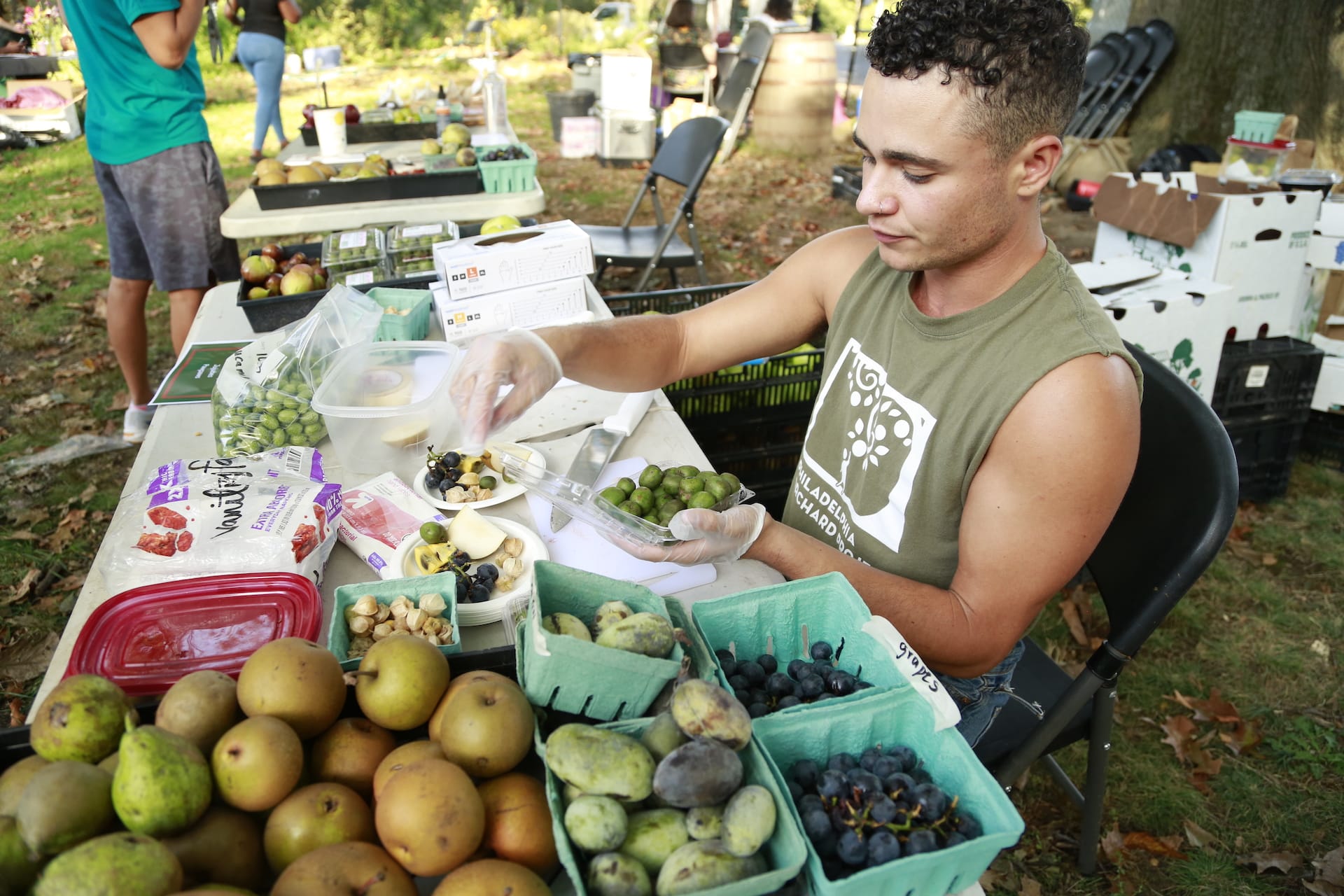
Program Coordinator Julian D’Andrea at an orchard celebration
The Learning Orchard is the only location where POP is directly involved with the harvest. Jordan says, “For people to have a say over what they’re eating and how is really important.”
What’s Next
There’s a lot on the horizon for POP and its partners, including a high tunnel completion celebration and Spring Open House at the Learning Orchard in May, and a Strawberry Festival at Historic Strawberry Mansion in June with “tons of berries” for people to enjoy.
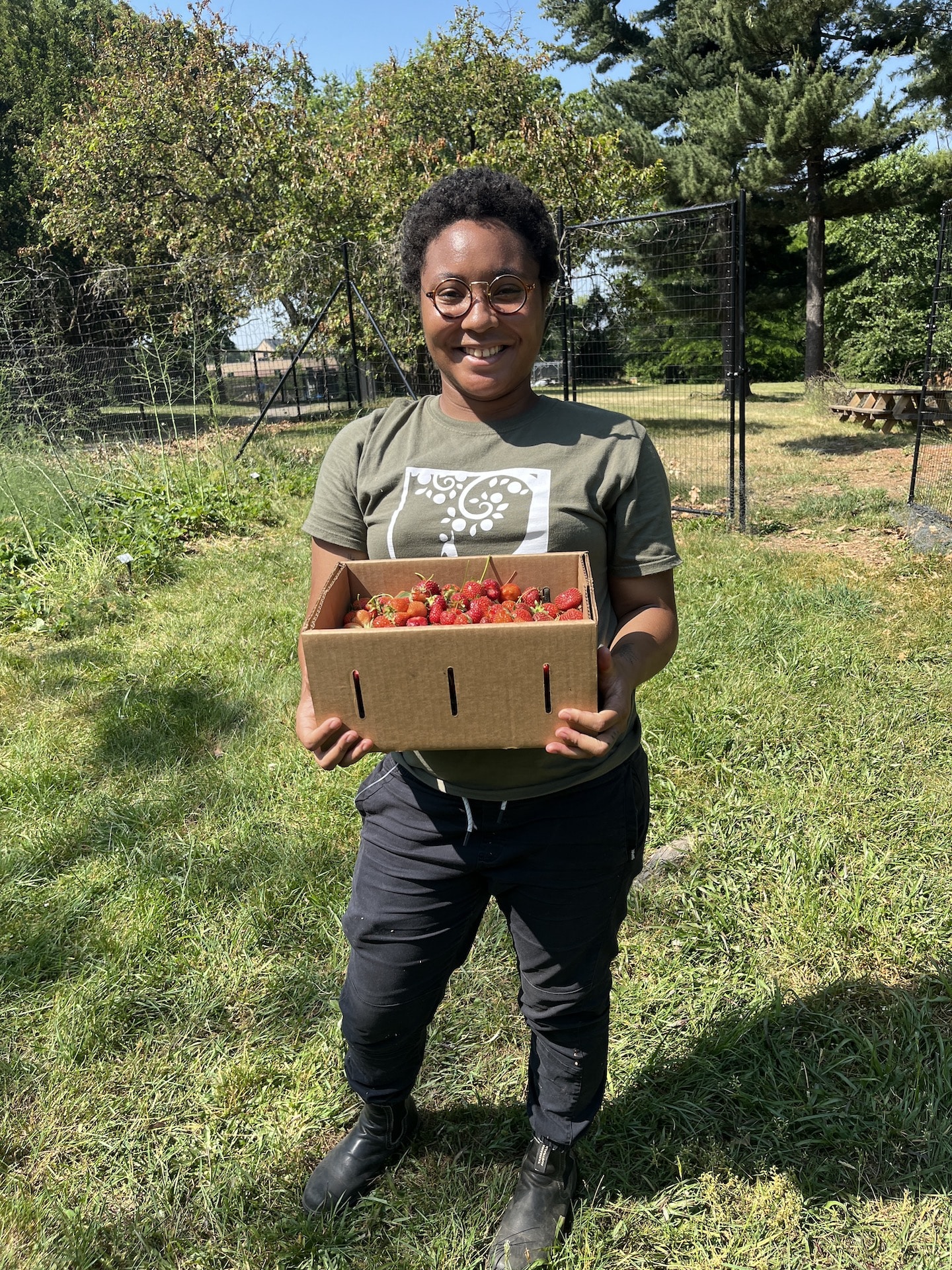
Community Outreach Coordinator Deja Morgan
POP’s new high tunnels will be used for growing produce and season extension as well as for testing climate-adapted plants, which can’t currently survive in PA’s climate, but will within the next decade.
POP is also exploring partnerships for some value-added products like herbal teas, jams and syrups and looking at its next phases of infrastructure for an operations barn and cold storage at the Learning Center.
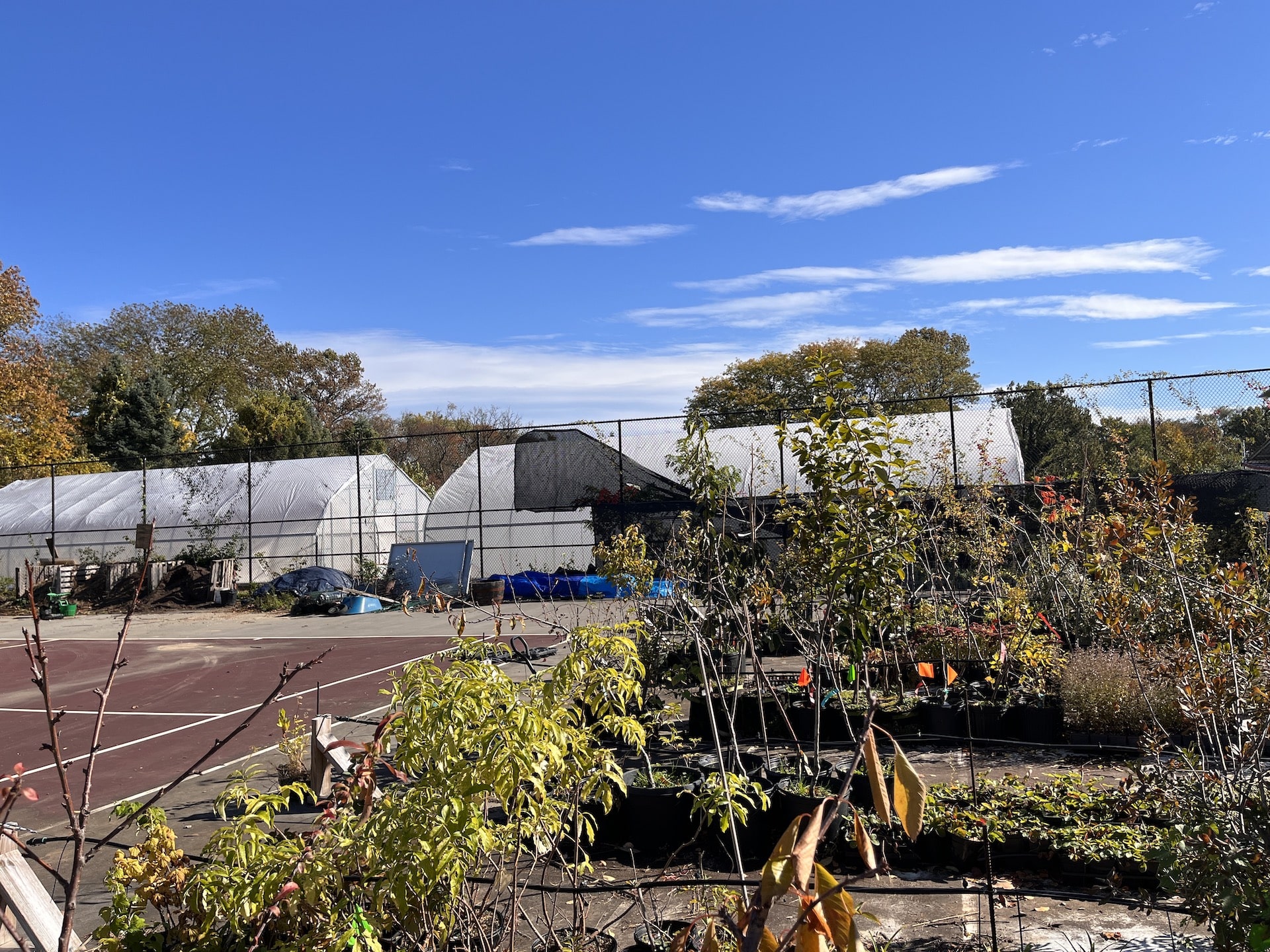
And, POP will stay the course, acting as a constant resource to its community partners.
Jordan says, “Our main contact for each site provides us with information on challenges and successes, what’s going well and where they need help. That guides our educational efforts for the next year.”
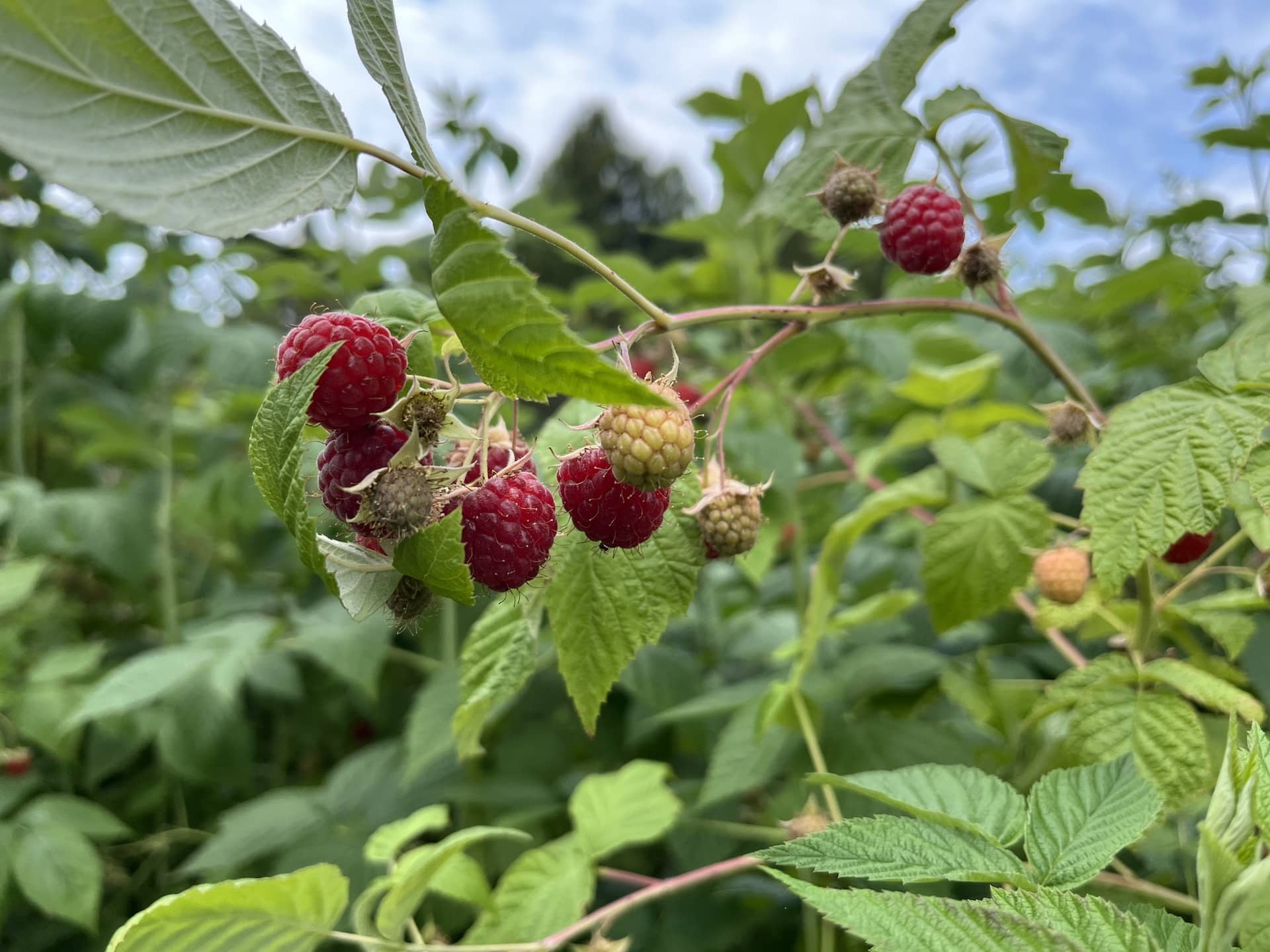
You can learn more about Philadelphia Orchard Project on its website. Follow its Instagram and Facebook pages for news and updates. If you’re interested in supporting POP, check out its volunteer and events email list.
To visit Philadelphia Orchard Project’s Learning Orchard, head to The Woodlands, 4000 Woodland Ave., Philadelphia; phone: (215) 724-1247.
- Photos of POP full staff and Julian D'Andrea: Precious Parker
- All other photos: Philadelphia Orchard Project staff
